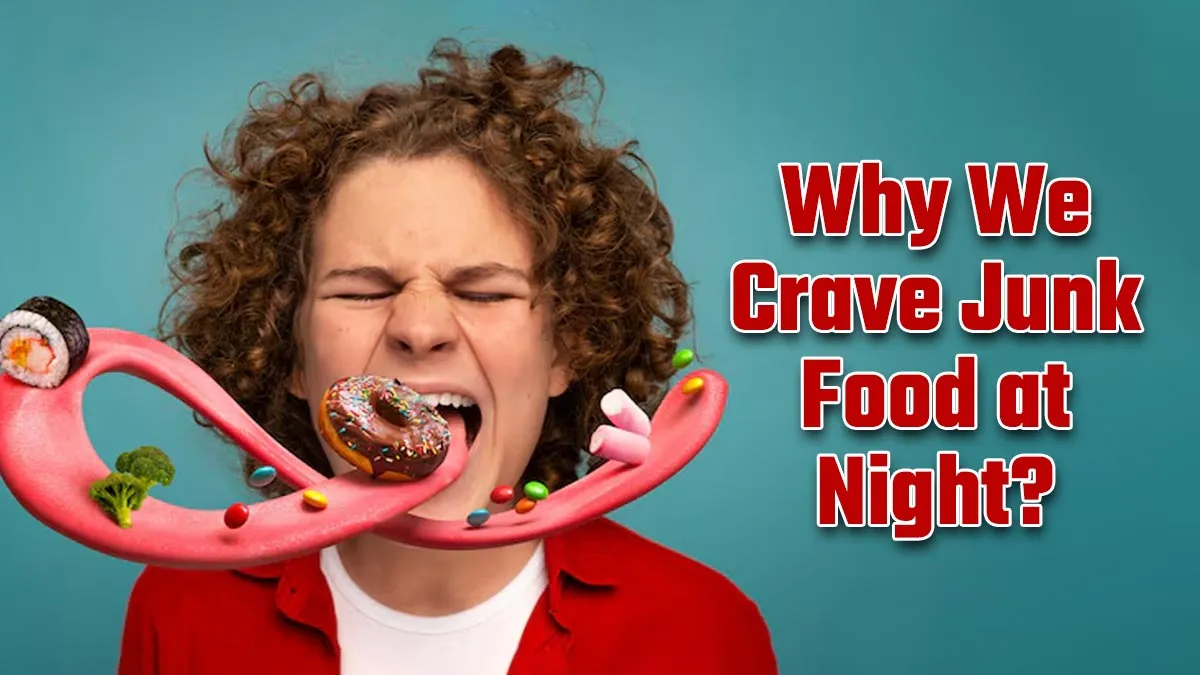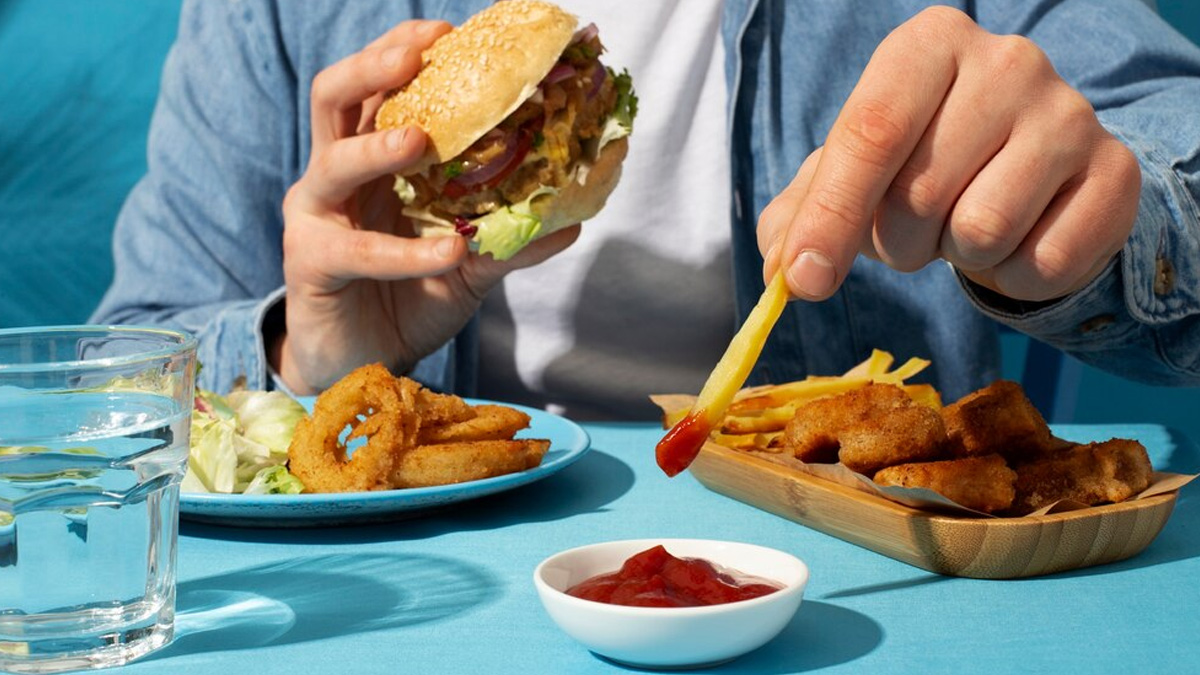
Have you ever wondered why you reach for chips or cookies at night but prefer oatmeal or fruit in the morning? The answer lies in how your body and mind change throughout the day. According to Ayurveda, an ancient holistic healing system, our cravings are deeply connected to our daily rhythms and stress levels. In the morning, after 7–8 hours of sleep, the body feels rested and calm. This state naturally leans toward lighter, healthier meals. But as the day progresses, stress builds up, and the mind seeks comfort. Junk food cravings kick in as a quick fix to cope with exhaustion. Let’s explore why this happens and how Ayurveda explains it.
Table of Content:-
The Ayurvedic Perspective on Evening Cravings
View this post on Instagram
Greesha Dhingra, Sadhak, Adhyatma Yog, Gurugram, explain that our body’s needs shift based on its energy and stress levels. “After a good night’s sleep, your body is detoxified and balanced. A stress-free system craves nourishment, not indulgence,” she says. Morning meals like fruits, nuts, or whole grains align with this refreshed state.
But by evening, stress from work, deadlines, or chores takes a toll. The body’s energy (or prana in Ayurveda) depletes, and cortisol (the stress hormone) rises. This imbalance triggers cravings for salty, sugary, or fatty foods. Greesha adds, “Junk food gives a temporary dopamine boost, fooling the brain into feeling rewarded. But it’s a short-term fix that worsens fatigue.”
The Science Behind Stress and Cravings
A study by the University of California, San Francisco, found that stress pushes people toward high-calorie foods. Participants under stress ate 25% more calories than relaxed ones. The study linked chronic stress to increased cravings for processed snacks. This aligns with Ayurveda’s view: stress disrupts digestion and weakens willpower, making junk food hard to resist.
ALSO READ: What Is Mitahar: The 50-25-25 Rule? Tips To Beat Bloating and Gas Issues
Why Mornings Are Different
In the morning, the body’s kapha energy (associated with stability) is dominant. This creates a calm, grounded state, reducing the urge for heavy or sugary foods. “A rested body wants nutrients, not empty calories,” says Greesha. But as vata energy (linked to movement) rises during the day, stress accumulates. By evening, the mind seeks quick energy fixes to counter exhaustion.
Expert Tips to Curb Evening Cravings

Instead of fighting cravings, Greesha suggests simple Ayurvedic practices to manage stress and energy:
Turn Off Food App Notifications
“Apps exploit your weak moments,” she says. Late-night discounts or alerts tempt you to order junk food. Silence these notifications to avoid impulsive decisions.
Snack Smartly
Keep roasted makhana (fox nuts) or peanuts handy. These snacks are light, crunchy, and satisfy cravings without spiking blood sugar.
Take Breathing Breaks
Greesha advises two 5-minute breathing breaks daily—one at 12 PM and another at 3 PM Sit quietly, close your eyes, and take deep breaths. This lowers stress hormones and restores focus.
Stay Hydrated
Dehydration often mimics hunger. Drink herbal teas or warm water with lemon to stay full and calm the mind.
The Long-Term Fix
Ayurveda emphasizes balancing energy through routine. Early dinners, mindful eating, and sleep by 10 PM help reset the body’s clock. Over time, this reduces evening cravings. Greesha adds, “Listen to your body. Cravings are signals—address the stress, not the symptom.”
ALSO READ: What Is Amlapitta? Tips To Manage Hyperacidity Naturally with Ayurvedic Tips and Lifestyle Changes
Conclusion
Evening junk food cravings aren’t about willpower—they’re your body’s cry for help. With Ayurvedic practices, you can break the cycle. As Greesha says, “Nourish your body when it’s calm, and comfort your mind without junk food.” Small changes, like mindful snacking or breathing breaks, make a big difference. Next time stress hits, pause, breathe, and choose wisely. Your body will thank you!
Also watch this video
How we keep this article up to date:
We work with experts and keep a close eye on the latest in health and wellness. Whenever there is a new research or helpful information, we update our articles with accurate and useful advice.
Current Version